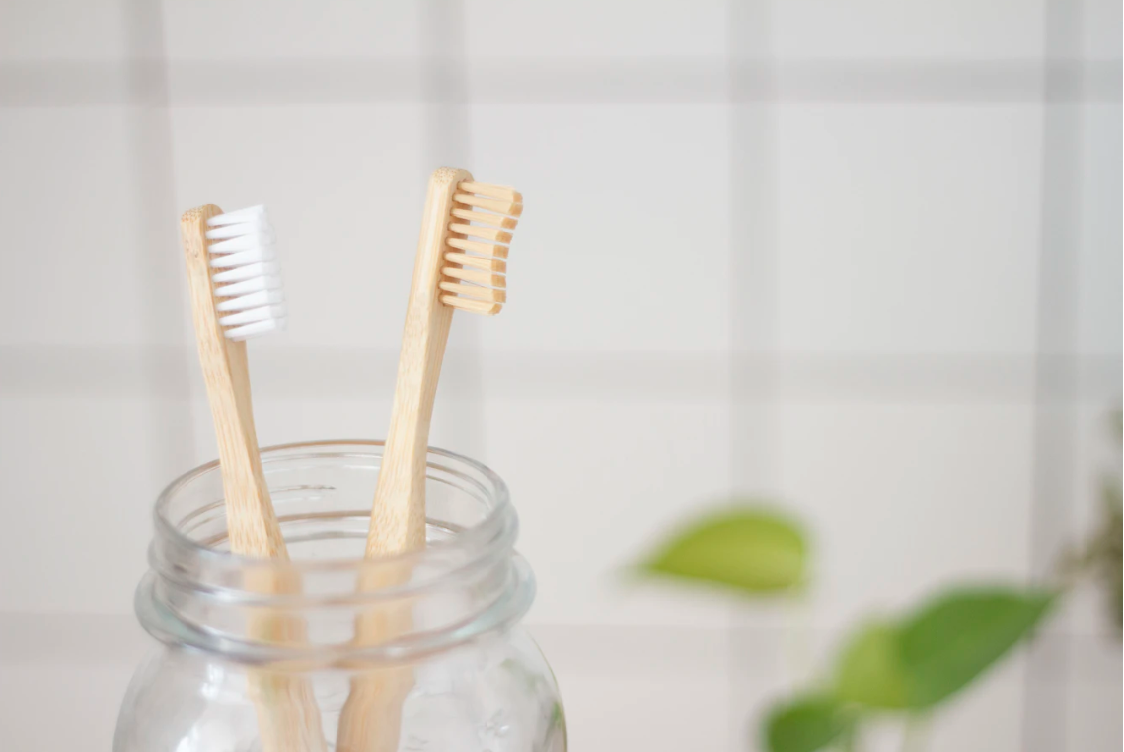Practicing good oral hygiene is essential for achieving an appealing smile of bright white teeth. The reasons for daily oral care extend far beyond the cosmetic though. Establishing good oral care habits is necessary to maintain a healthy mouth ecosystem. Proper oral hygiene helps buff away the millions of bacteria in tooth plaque. Without ongoing oral care, your mouth is at a greater risk for developing cavities, bad breath, gum disease, and even cancer.
- Racing Through Brushings
Tooth brushing shouldn’t be like sprinting in the 100-meter dash. There won’t be an Olympic medal for the fastest oral care finish. Only brushing for 30 to 60 seconds is a bad oral care habit. Two minutes twice a day is the bare minimum for tooth brushing. Everyone can spare 120 seconds out of their busy morning and night schedules to practice good oral care. Toothbrushes with timers can help you stay on track. Playing your favorite song may also motivate you to keep brushing.
- Brushing Too Vigorously
Tooth brushing isn’t supposed to be a strongman competition either. You don’t need to unleash your inner Hulk to brush. Brushing too hard will hurt instead of help your dental hygiene. Aggressive brushing is a bad oral care habit that breaks down your tooth enamel and gums. Over time, vigorous brushing causes irreversible gum recession. Thus, reduce your brushing hand pressure. Use a soft-bristled brush or round electric toothbrush head to gently scrub teeth.
- Cutting Corners
The human mandible is naturally curved. In effect, you must consciously turn your toothbrush when rounding the corner from your front to back teeth. Cutting this corner is another common bad oral care habit. Sawing straight across will leave you with red and puffy gums. Once gums recede here, they won’t grow back. Focus on brushing each tooth individually to stop gum irritation. Hold your toothbrush at a 45-degree angle to clean teeth without hurting the gums.
- Forgetting to Floss
Bits of food you eat get trapped between teeth and under the gumline. Toothbrushes simply can’t reach these places. If you don’t floss, tartar will build up and decay will develop. Forgoing flossing is a bad oral care habit with huge consequences. Floss between all 32 teeth at least once per day. Cut yourself a long strand of floss to wrap around your fingers. Gently trace the side of your tooth up into the gum. Avoid sawing between teeth and making the gums bleed.
- Overusing Toothbrushes
Every toothbrush should have an expiration date. Using a toothbrush for longer than three months is counterproductive. There isn’t a world record you can win for the oldest toothbrush. Trash old toothbrushes that have exceeded their lifespan. Using toothbrushes too long is a bad oral care habit that can promote bacteria growth. Broken down toothbrush bristles also scratch the gums and miss crucial tooth surfaces. Buy toothbrushes in bulk and change them out seasonally.
- Chewing Sugary Gum
Chomping on gum can be a good oral care habit. Sticky pieces of chewing gum can get food particles unstuck from your gums. Gum also stimulates your salivary glands to relieve dry mouth and combat bacteria. However, gum packed with sugar will do more harm than good. Sugar eats up tooth enamel and creates holes called cavities. If you’re a frequent gum gnasher, switch to a sugar-free brand. Only clean teeth with chewing gum between meals; gum isn’t a substitute for actual brushing.
- Ignoring Your Tongue
Tongues have a rough, bumpy texture with tiny nooks and crannies for bacteria to lurk. Every lick of your tongue transfers this bacteria to your teeth. Bacteria buildups on the tongue also contribute to stinky halitosis odors. Overlooking your tongue is a bad oral care habit that can lead to dental diseases. Add tongue scrubbing into your daily brushing routine. Run your toothbrush bristles over your tongue from back to front. Don’t miss the sides of your tongue where bacteria hide out.
- Skipping Mouthwash
Tooth brushing alone won’t kill 100 percent of the bad bacteria in your oral ecosystem. Swishing around mouthwash is vital to destroy other harmful germs. Daily rinses with mouthwash lower your risk of getting gingivitis or worse. By defeating plaque, mouthwash also keeps dental sockets strong for cavity prevention. Rinse with one gulp of antibacterial mouthwash every day for 30 seconds. If the mouthwash stings too much or dries out your mouth, select an alcohol-free alternative.
- Filtering Out Fluoride
Contrary to the popular myth, fluorinated drinking water isn’t your enemy. The American Dental Association firmly states that water fluoridation is safe and effective. If you’re using a filter system to remove fluoride, you’re missing an important mineral. Fluoride defends teeth against decay and dental cavities. Drinking plenty of water and using toothpaste with fluoride are good oral care habits. Pick water filters, such as Brita and PUR, that remove harmful substances without eliminating fluoride.
- Canceling Cleanings
Trips to a dental hygienist are essential events on your calendar. Professional cleanings must be scheduled every four to six months. Dental hygienists use sickle scalers to scrape tartar off your teeth. Hygienists use perioprobes to spot dental anomalies early too. Though it’s tempting, don’t blow off dental hygiene appointments. Only cancel when necessary and reschedule right away. If you don’t have dental insurance, ask about affordable in-house plans. If you suffer from dental anxiety, practice deep breathing exercises and bring along some fun distractions.
These aren’t the only bad habits that affect your oral health. For instance, biting your nails wears down tooth enamel and spreads germs. Munching on ice cubes can crack your teeth and cause sensitivity. Guzzling soda and juice leaves teeth coated in sugar that promotes decay. Sleeping with your mouth open leaves your mouth dry and vulnerable to bacteria. Grinding your teeth leaves permanent wear and tear that weakens your enamel. Drinking acidic coffee also erodes and stains the teeth. Take steps to break these bad oral care habits for a rave review at your next dentist appointment.



